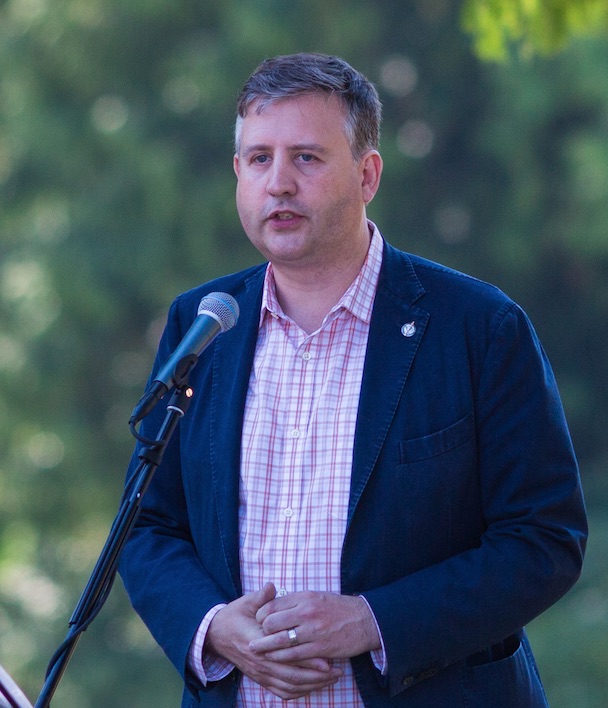
Vancouver’s incoming mayor says a revamped National Energy Board review of the Trans Mountain pipeline expansion is likely doomed to fail and will land the federal government back in a courtroom.
The energy board is reviewing the project’s impacts on the marine environment and Kennedy Stewart says it’s too rushed, including a week-long window for Indigenous groups and others to apply to participate.
“I do think the revamped NEB process we’re going through probably is going to fail again. I don’t think giving First Nations a week to submit to a brand new reconciliation process is enough time and that’ll be challenged in court again and rightly so,” he said in an interview.
“I could see this being deadlocked like the Mackenzie Valley pipeline for many, many, many years,” he added, referring to a proposed natural gas line through the Northwest Territories that was stalled for decades.
Stewart, formerly the New Democrat MP for Burnaby South, was among a group of protesters who were arrested in March while blocking Trans Mountain’s main gate, violating a court order to stay five metres from company work sites. He pleaded guilty to contempt of court and paid a $500 fine.
After winning Vancouver’s mayoral race by fewer than 1,000 votes, he will be sworn in on Monday.
His opinion on the pipeline expansion hasn’t changed, he said, and he will continue to back the city’s practice of supporting local Indigenous groups in their court challenges by applying to be an intervener.
The Tsleil-Waututh and Squamish Nations have traditional territories in the Vancouver area and both have said the new process is repeating the same mistakes and laying the groundwork for a new court challenge.
The Federal Court of Appeal struck down the federal government’s approval of the project in August due to inadequate Indigenous consultation and the energy board’s failure to review impacts on the marine environment.
Prime Minister Justin Trudeau’s government, which has purchased the existing Trans Mountain line and expansion project for $4.5 billion, tasked the energy board with reviewing marine environment impacts and submitting a report by Feb. 22.
Energy board spokesman James Stevenson declined comment on Stewart’s remarks but has said previously that the revamped review will be a comprehensive scientific and technical examination of project-related marine shipping.
Stewart said Trudeau was the one who brought up Trans Mountain during their first meeting Thursday since Stewart’s election win.
“I said, ‘First of all, it’s been a weird year. I was arrested, then I resigned as MP and now I’m mayor, within a period of about six months.’ But my position on that was clear. I’m still very much opposed to this pipeline,” he said.
“However, I understand my role has changed. Perhaps where my mandate as MP in Burnaby was to stop the pipeline as a top priority, the voters of this city have said your priority is to fix our housing problem.”
The pipeline expansion would triple the amount of oil being carried from the Edmonton area to a marine shipping terminal in Burnaby, increasing the number of tankers in Metro Vancouver waters seven-fold.
Stewart also said he told Trudeau that if the city takes any action against the project, he will call first to inform him.
Trudeau and Alberta Premier Rachel Notley have said the project is in the national interest because Alberta needs to get its oil to markets outside the U.S. where it can fetch higher prices, particularly in Asia.
But Stewart said it’s ridiculous that Canada exports oil in the west while importing oil in the east. The country should have a national energy strategy that involves refining products in Canada, particularly in the eastern part of the country, he said.
“What ultimately would be the best thing to do is to ship Alberta oil east, make sure there’s guaranteed supplies for existing or new refineries, so Canadians are using Canadian oil,” he said.
Trudeau addressed the Greater Vancouver Board of Trade before his meeting with Stewart on Thursday. The prime minister said the court’s decision laid out a road map for his government to proceed with the project.
After meeting with Stewart, Trudeau said they agreed to make housing and infrastructure top priorities while diverging on the pipeline expansion.
“Obviously there’s issues like TMX where we’re going to disagree, but there’s also an awful lot for us to work on together.”